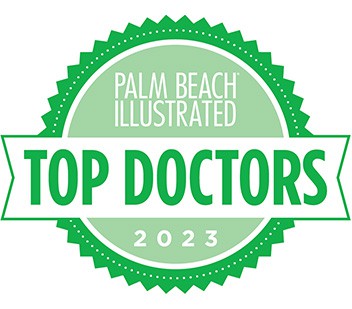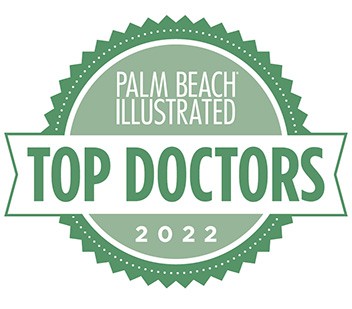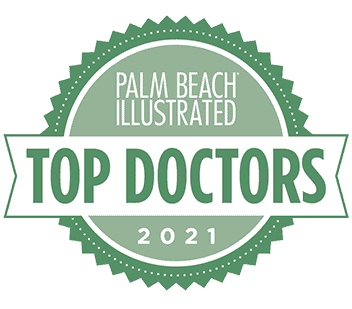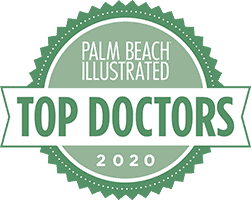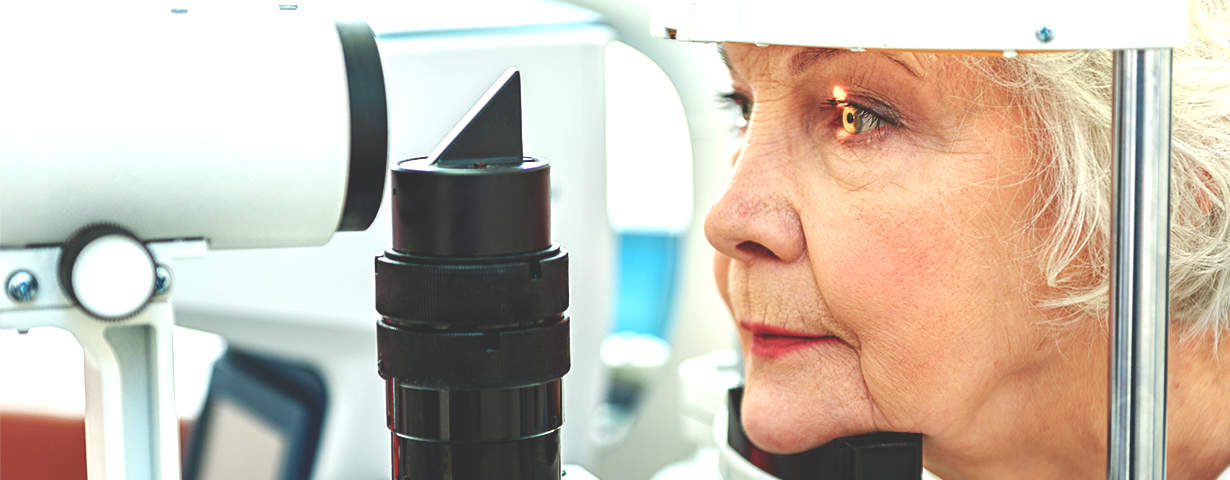Click here to resize type
Glaucoma Treatment in
West Palm Beach & Jupiter, FL
What is Glaucoma?
Glaucoma, a leading cause of blindness, develops when excess pressure within the eye begins to damage the optic nerve, your eye’s visual lifeline to the brain.
Without regular eye exams, glaucoma can go undetected for a long time. The more advanced it becomes, the greater the threat to your vision.
Glaucoma can strike at any age, although the risk increases as you grow older. Elevated eye pressure can occur without symptoms, and is as dangerous to your eyes as hypertension is to your organs.
The team of doctors at Mittleman Eye is trained to catch signs of glaucoma early, before the disease can claim any of your precious vision.

Glaucoma and Your Optic Nerve
Glaucoma is a group of conditions that damage the optic nerve, which transmits information from your eye to your brain. When it does not function properly, permanent vision loss and blindness can result.
Types of Glaucoma

The two main types of glaucoma are primary open-angle glaucoma and primary angle-closure glaucoma. Nearly 90% of glaucoma cases are open-angle glaucoma, which is characterized by an obstruction in the trabecular meshwork that leads to mounting pressure in your eye. This form of glaucoma progresses slowly, so it is more likely that it is detected with an eye test than by symptoms.
With angle-closure glaucoma, the iris prevents fluids from draining properly in the eye and pressure mounts quickly. Because it rapidly steals vision, angle-closure is much easier for patients to notice on their own. Accordingly, it requires immediate attention since left alone it can cause blindness within a matter of months.
Although less common, there are other secondary forms of glaucoma, such as:
- Traumatic glaucoma: an injury leads to pressure elevation
- Pigmentary glaucoma: clumps of pigment in the iris clog eye fluids
- Neovascular glaucoma: new blood vessels impede the eye’s draining functionality
- Uveitic glaucoma: swelling at the center of the eye causes glaucoma
Glaucoma Symptoms and Detection
The first warning sign of glaucoma is usually higher-than-normal levels of pressure inside the eye. During a comprehensive eye exam, your eye doctor will measure fluid pressure in your eyes using a test called applanation tonometry, wherein a small sensor makes contact with the surface of your eye. If the doctor detects elevated intraocular pressure, he or she can evaluate the optic nerve for signs of damage. If you are diagnosed with glaucoma, the doctor will recommend how to proceed. Although glaucoma cannot be cured, it can be monitored and managed with medications, laser therapy or surgery.
Are There Any Glaucoma Risk Factors?
Glaucoma risk factors include the following:
- Being of African or Hispanic descent
- Being over the age of 60
- Pre-existing diabetes
- Pre-existing high blood pressure
- A family history of glaucoma
- A history of serious eye injury
Glaucoma Prevention
Doctors do not yet know how to prevent glaucoma. Some risk factors, such as age and family history, are out of your control. But there may be things you can do to delay the onset of the disease.
Some studies suggest that eating a nutritious diet may protect the eyes against serious diseases like glaucoma. Green leafy vegetables, colorful fruits and fish are particularly eye-friendly foods.
Not smoking, consuming alcohol only in moderation and maintaining a healthy weight are also recommended. Though these behaviors may not completely protect you against eye disease, they certainly do not hurt.
Glaucoma Treatments
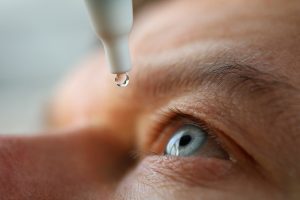
Thanks to advancements in the scientific understanding of glaucoma, multiple treatment options are now available, depending on the severity of the condition.
Usually considered the first treatment option, medicated eyedrops have been found effective at either improving the drainage of the eyes or preventing excess fluid production in the eyes.
In more advanced cases, laser therapy (known as trabeculoplasty) can use heat energy to unblock the tissue at the meeting point of the iris and cornea. Within a few weeks, your eyes should drain more efficiently, with ocular pressure dropping.
More recently, minimally invasive glaucoma surgeries (aka MIGS) have become popular and mainstream in eye care centers like Mittleman Eye. Because they are less invasive than traditional laser surgery, the procedure is easier to recover from and has a significantly lower risk of complications. The exact approach for lowering ocular pressure depends on your eyes and the type of blockage, which can be assessed with comprehensive exams.
Glaucoma FAQs
Can glaucoma treatments restore vision I have previously lost?
Unfortunately, any vision you lose to glaucoma is gone permanently, which is why prompt treatment is vitally important. Although glaucoma cannot be “cured,” it can be slowed to the point where you maintain your sight for the rest of your life.
Will I lose my vision temporarily following glaucoma treatment?
Glaucoma treatments are focused on protecting your vision in the long term. Fortunately, even the most invasive form of glaucoma treatment, laser surgery, only causes temporary blurriness in vision. Most patients feel and see well enough to resume normal activities like working and driving a couple days after their procedure.
Do I need to continue using eyedrops after having MIGS?
Results differ from one patient to the next. The only way to assess whether you still need to use the eyedrops is to check on your ocular pressure a couple months after your treatment. It can take several weeks for the fluids that have amassed in your eyes to fully drain, so only then does it make sense to ask your doctor if the eyedrops are still necessary.
If you would like to learn more about detection and treatment of glaucoma, we invite you to schedule a personal consultation with an experienced ophthalmologist at our West Palm Beach or Jupiter office by contacting Mittleman Eye today.





